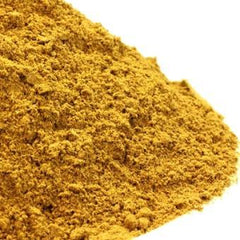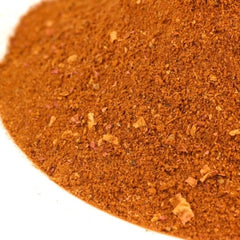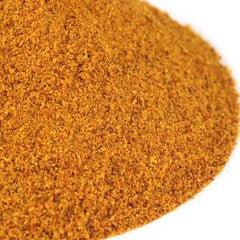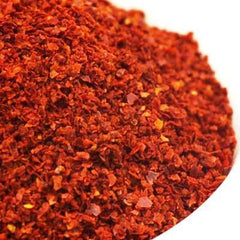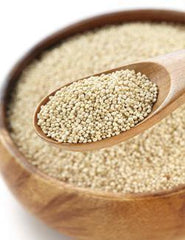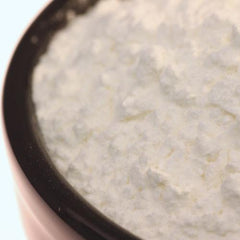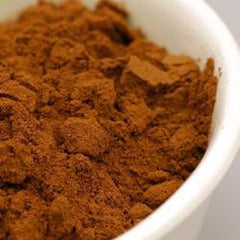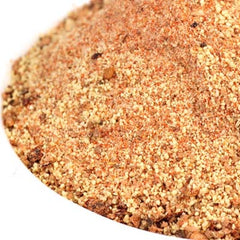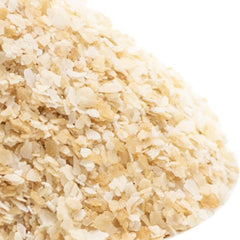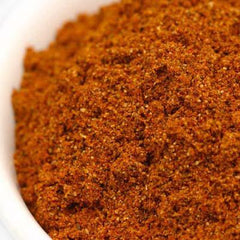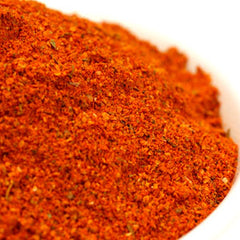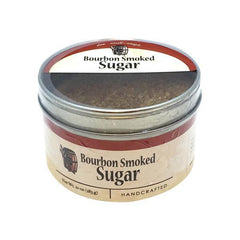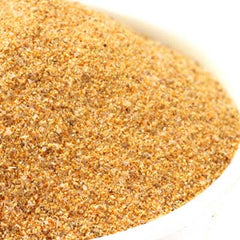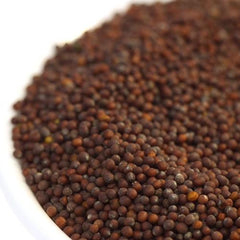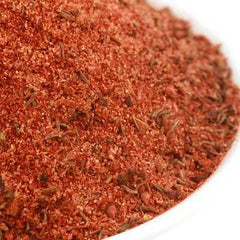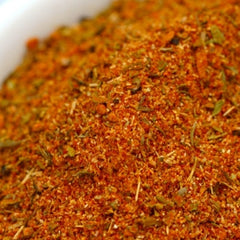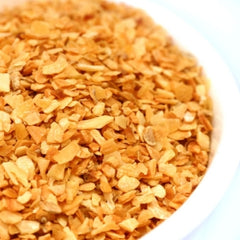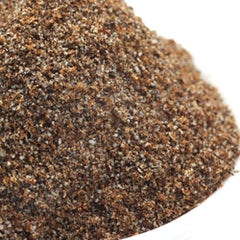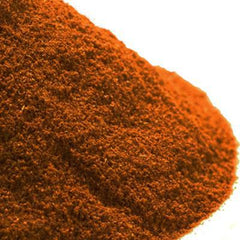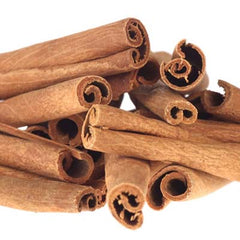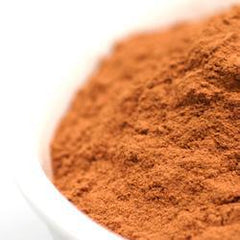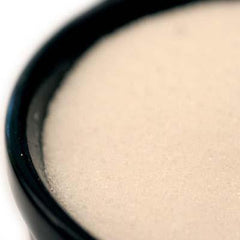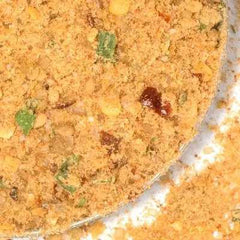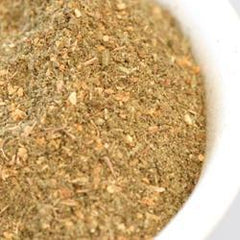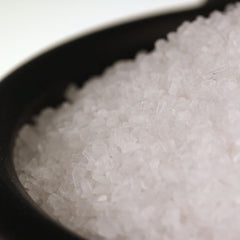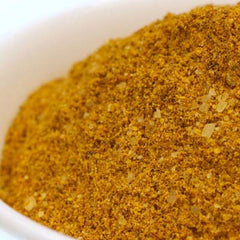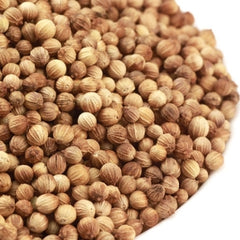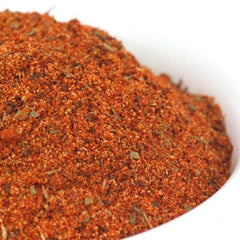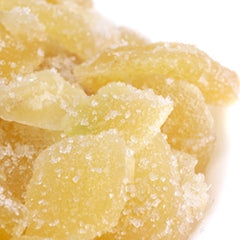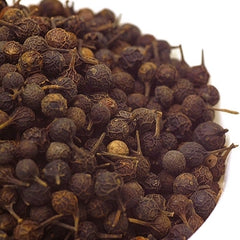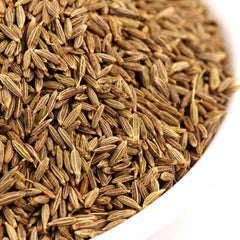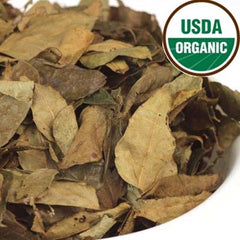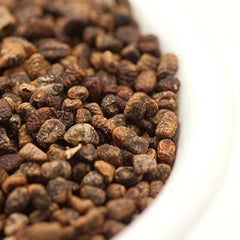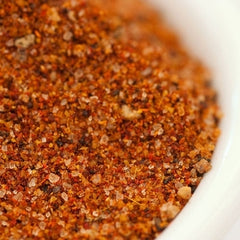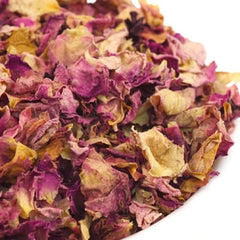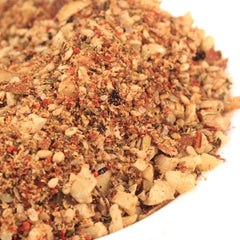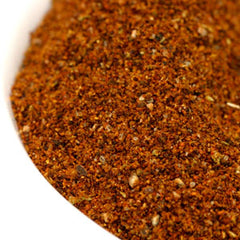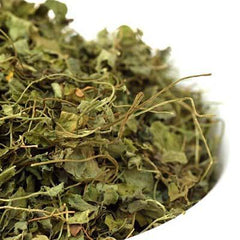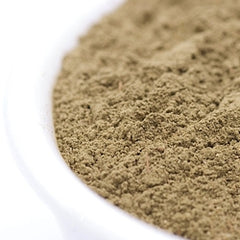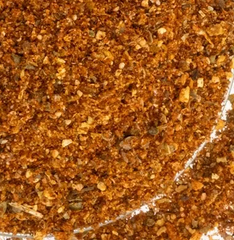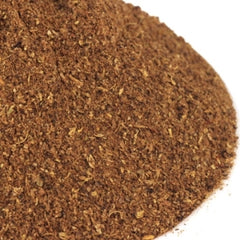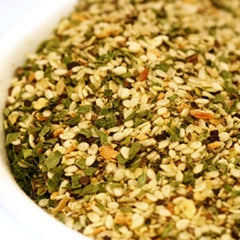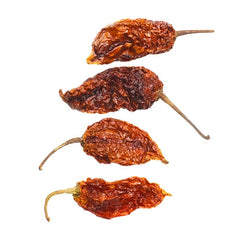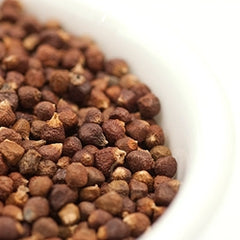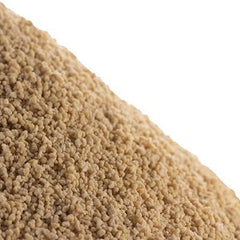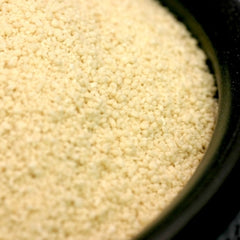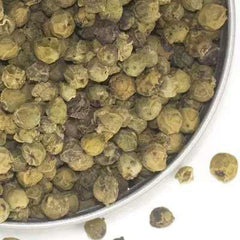Ground Marjoram (Ounce)
Marjoram pronounced "MAHR-juhr-uhm", botanical name Origanum majorana, is from the family Lamiaceae. Other members of this family include basil, lavender, mint, oregano, rosemary, sage, savory and thyme. Also, known as wild oregano, sweet marjoram and knotted marjoram. Native to Asia Minor (modern day Turkey) and the Mediterranean region, it has been used since ancient times. For a long time, Oregano was known as “wild marjoram” and many botanists believe Marjoram and Oregano are practically indistinguishable. Most chefs do not share this opinion, and believe that the flavor differences are very noticeable to the discerning palate. Marjoram is commercially grown in Central and Eastern Europe, England, India, the Mediterranean, South America and the US. Egypt is the world’s leading producer of marjoram and is the source for this ground marjoram. The French add Marjoram to the herb blends Bouquet Garni and Fines Herbs for flavoring fish, lamb and pork dishes. In Germany, it’s called the “sausage herb” and is used with thyme and other spices in different types of sausages. Marjoram is popular in Greek cooking, for grilled lamb and meats and to complement onions, garlic, and wine. Italians use it in fish dishes, pizzas, tomato sauces and vegetables. North Africans and Middle Easterners use marjoram in barbecues, lamb, mutton, seafood and vegetables. Marjoram compliments clam chowder, chili, eggplant, salads, butter-based sauces, fish sauces, mushroom sauces, tomato-based sauces and vinegar. Marjoram works well in combination with basil, bay, black pepper, chili powder, cumin, garlic, paprika, parsley, rosemary and juniper. Add marjoram toward the end of cooking to retain its delicate flavor. Marjoram’s taste is a bit minty, a little sharp and with bitter notes.



